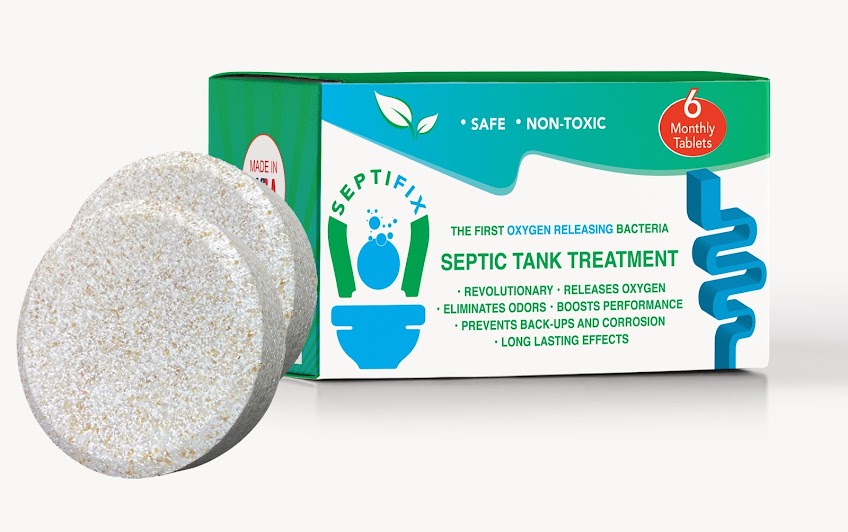How To Keep A Septic System From Freezing
Worries over a frozen septic system loom large for most as winter approaches. Dry soil, very cold temperatures, and a lack helpful snow layer over an extended period of time can all conspire to freeze up your septic system. A frozen septic system can lead to problems like toilets that won’t flush, sinks that won’t drain, washing machines and dishwasher water lines that don’t function… and those are just tips of the iceberg, pardon the pun. The good news is that, with a little effort of prevention, these potential frozen septic system problems can be avoided.
How do you keep your septic system from freezing during the winter months? Basically, the first thing you need to do is to ensure that your septic system is insulated, whether with soil, snow, or vegetation. Be careful, however, of compacting the soil or snow over your septic system too much as compacted soil or snow can hasten the freezing underneath. Inspect your plumbing system for leaks or drains that appear to be clogged. These basic (and primary) steps need to be effected especially if your septic system has been inactive for a long period of time (like for vacation homes, etc.)
Experts recommend to desist from mowing the grass on your drainfield for at least two weeks before the winter season begins. The reason for this is long grass holds on to snow more effectively and this layer of snow of needed to act as insulation. If there are no grass over your drainfield, mulching over the area will do the trick. Put a layer of straw, hay, or leaves of around 8”-12” thick.
To better avoid the problems of a frozen septic system, it would help to understand that a typical septic system consists of four main parts where difficulties may arise during the cold season:
- The main pipe running from the house to the septic tank
- The septic tank itself and, in some cases, the pump lift station
- The pipe running from the septic tank to the drainfield (or leach field)
- The drainfield itself
If your house sewer pipe lies less than four feet below the ground’s surface and it does not have added insulation, this makes your pipe susceptible to freezing. Often, the wind naturally prevents snow from accumulating by the north and west sides of any house or facility, thus you are left with no insulating layer and frost is able to penetrate deeper into those areas.
Make sure that your septic system has an insulating cover or blanket to trap heat inside the system. As we all should know by now, there are resident anaerobic bacteria in the septic tank that aids the breakdown of solid waste materials and which treat the raw wastewater from your home or facility. Heat is required to sustain a high level of metabolism among the bacteria. If there is no sufficient insulating snow, the frost will be able to penetrate deep into the septic system, leading to potential problems throughout.
Avoid parking heavy vehicles or building heavy structures over your septic system. This compacts the soil which then allows for freezing underneath, potentially damaging your septic components and eventually causing failure in the system.
Similarly, compacted snow will not provide effective insulation. Driving over your septic system pushes the snow even deeper into your system. This is why insulated pipes are more suitable for septic systems.
It is recommended that you maintain vegetation over your septic system. Grass and other vegetative cover aids in insulating the septic system underneath by holding the snow when it comes. However, the fall season could also diminish this natural insulation right before winter sets in. So take extra care of your plants over the septic system during the fall season.
Inspect your plumbing system for leaks. The small amount of water here and there in a leaky plumbing system can easily cause freezing. Note that water discharges from furnaces or humidifiers likewise add to the overall moisture in your plumbing system. This is because when these appliances are running, they discharge small amounts of water. As it goes through your septic system, it can trickle its way down the pipes and build up a frozen clog. As much as possible, re-route the water discharge from appliances like these.
Check for deteriorated, clogged, or poorly installed pipes which are draining poorly. Pipes that are not in good condition cause water accumulation which can easily freeze over in cold weather.
Vacation houses, long-unoccupied facility spaces, or homes with very little occupancy (like one or two inhabitants) are susceptible to frozen septic systems. Low occupancy means that wastewater does not regularly enter the septic system. This low introduction of flowing water abets freezing.
Will Anti-freeze Damage a Septic System?
Some people resort to pouring anti-freeze down drains. Anti-freeze could contain either ethylene glycol or propylene glycol. Ethylene glycol is a poisonous substance harmful to both humans and animals. On the other hand, propylene glycol is less toxic. Experts recommend using anti-freeze sparingly – avoid it totally, if possible. Pouring anti-freeze down your drains can kill the beneficial bacteria in your septic system.
If you shut down your septic system over the winter months, make sure that your toilets, toilet tanks, and U-traps under your sinks have been thoroughly drained. Using a moderate amount of anti-freeze (RV, not automotive) in those spots can be helpful. Check the labels on the anti-freeze before purchasing. There are a few anti-freeze products that are septic system-safe. Check with your trusted plumber if using an air compressor to “blow out” your plumbing system is at all possible. Also, it is advisable to have your holding tank pumped shortly before the winter months arrive. Holding tanks that are left full but unutilized over the winter season causes the sewage to get very cold or even freeze up. Cold sewage can cause problems in the spring when you start your septic system back up.
How to Unfreeze a Frozen Septic System
To unfreeze a frozen septic system, you will need to thaw the ice that is causing the blockage in the septic system or line.
- Locate your septic holding tank. Several systems have two access covers (one for the primary compartment that houses the solids and another one for the secondary compartment that contains the liquid waste). Look for the cover where the septic line from the house or facility enters the holding tank. This is typically the cover that is closest to the facility.
- Open the septic tank cover. You will most likely need a crow bar or a pry bar to lift the concrete lid from the ground. If the ground is frozen, take some time to carefully trench out the dirt right next to the lid.
- Pass a hose through the septic line. The hose nozzle should be longer than the diameter of the pipe (septic line pipes are typically 4″) to prevent the nozzle from turning within the pipe. This keeps the stream pointing toward the blockage.
- Run warm water to thaw the line. For this, it is ideal to use a source that is completely isolated from your domestic water supply. This ensures that nothing from the septic systems mixes with the water supply you consume. If this is not possible and you do use a source of water directly from your home source, use a back-flow prevention valve to protect your domestic water supply.
If you are going to attempt to thaw your septic system yourself, be sure to dress properly for the task. Full-length pants and a long-sleeved shirt, water resistant and heavy-duty shoes or boots, gloves, and work goggles are minimum requirements.
How to Avoid Septic Tank Problems in Cold Weather
Frozen Septic Tank Components. When frost or snow penetrates deep into the parts of your septic system and freezes it in part or in whole, the metabolism by the anaerobic bacteria in your septic tank is greatly slowed down. Provide your septic system with an insulating cover or blanket to keep it warm during the winter months. Vegetation around your tank likewise helps shield your system from the cold. Running your tap and firing up your septic system every day in winter can also help reduce the possibilities of freezing.
Compacted Soil and Snow. When you frequently drive over snow or ground with your car or plow over the area of your tank or drainfield, this compacts the soil and/or snow, making them dense. Compacted soil or snow will be less effective in insulating your tank during cold weather, potentially leading to a frozen septic system. This causes wastewater to not be filtered and drained properly. Be sure to avoid driving, parking, or building over your septic areas and to aerate your soil before the winter months set in.
Poorly Functioning Pipes. Clogged or leaky pipes can often lead to improper drainage. This causes water to freeze, which will potentially damage your septic system further. Clogs can cause wastewater to accumulate in your pipes, freezing over when the winter cold sets in. Frozen wastewater can damage your septic system and can likely contaminate your drinking water. Avoid these difficulties by repairing leaky pipes and addressing clogs before cold temperature hits.
Overworked septic system Over the Holidays. Having many guests over the holidays adds strain to your septic system. With the increase in showers and laundry, your system can become overworked. The preparation of elaborate meals can likewise contribute to an overworked septic system. Also, there is no monitoring of all items getting flushed down your toilets by everyone. Manage this potential strain on your septic system by staggering showers and washing machine loads. Spread your elaborate food preparation over a few days, if possible. Keep septic-safe toilet paper in your bathrooms and perhaps make scrap paper available for wrapping and discarding non-biodegradable waste into the trash bins.
As a home or business establishment owner, you know that your septic system is a vital component in your property. Your septic system is your very own wastewater treatment and sanitizer facility. Your septic system isolates the toxic raw wastewater away from your living environment, keeping everyone safe and healthy. This is why you have to ensure that your septic system is always functional, especially during the winter season. The cold weather can inflict damage on your septic system when not conditioned right. Your priority is to make sure that your septic system is able to do its work efficiently before the snow comes.
[us_map]
https://visihow.com/Keep_Your_Septic_Functional_During_Winter
https://www.doityourself.com/stry/how-to-prevent-a-septic-field-from-freezing
https://thepinkplumber.com/blog/frozen-septic-tank-watch-out-for-these-symptoms/
https://www.nesc.wvu.edu/pdf/WW/publications/pipline/PL_FA95.pdf
https://www.wicola.org/education/septic-systems-ssts.html
https://blog.adbseptic.com/blog/5-winter-septic-tank-problems-and-how-to-avoid-them










